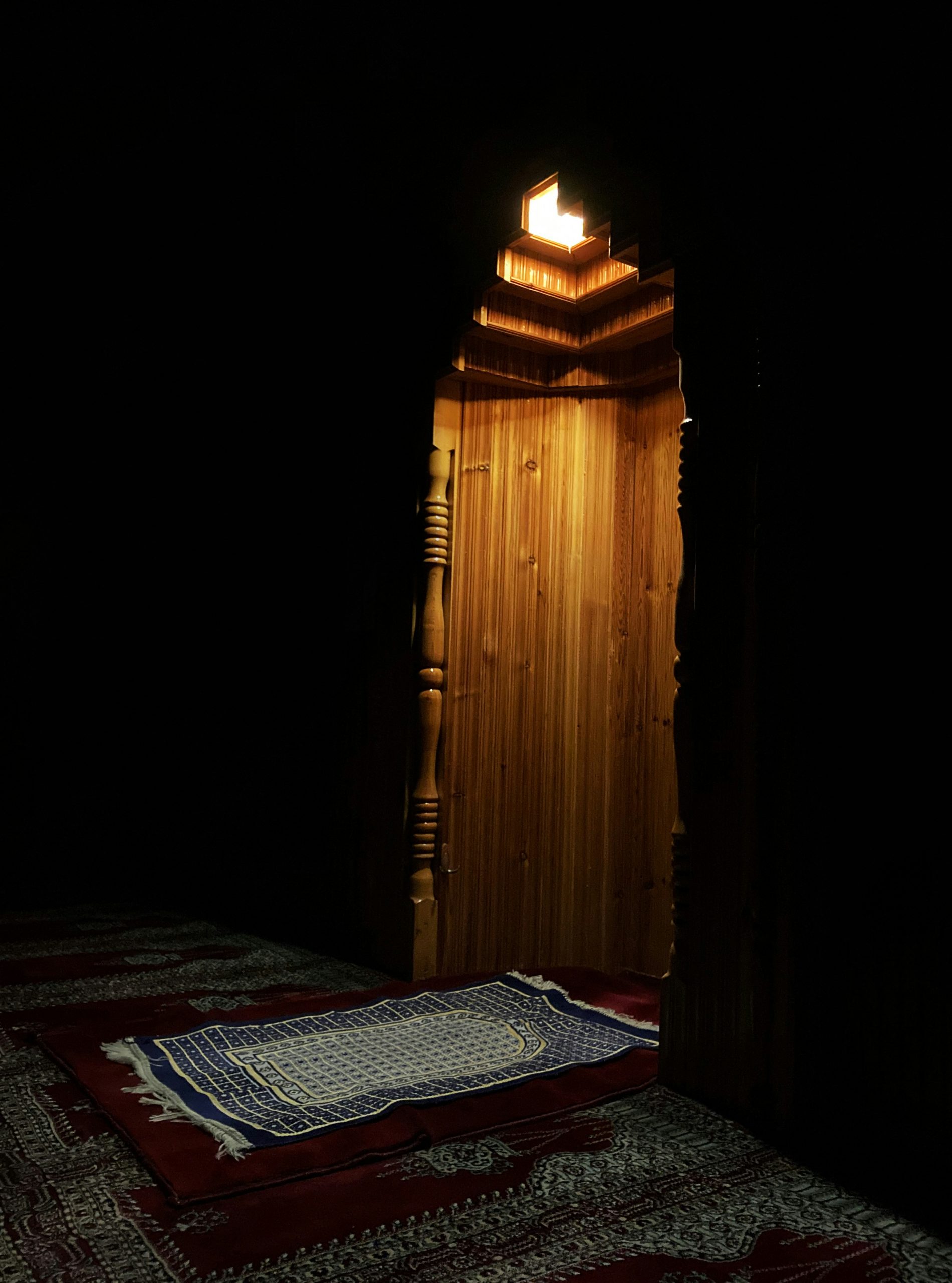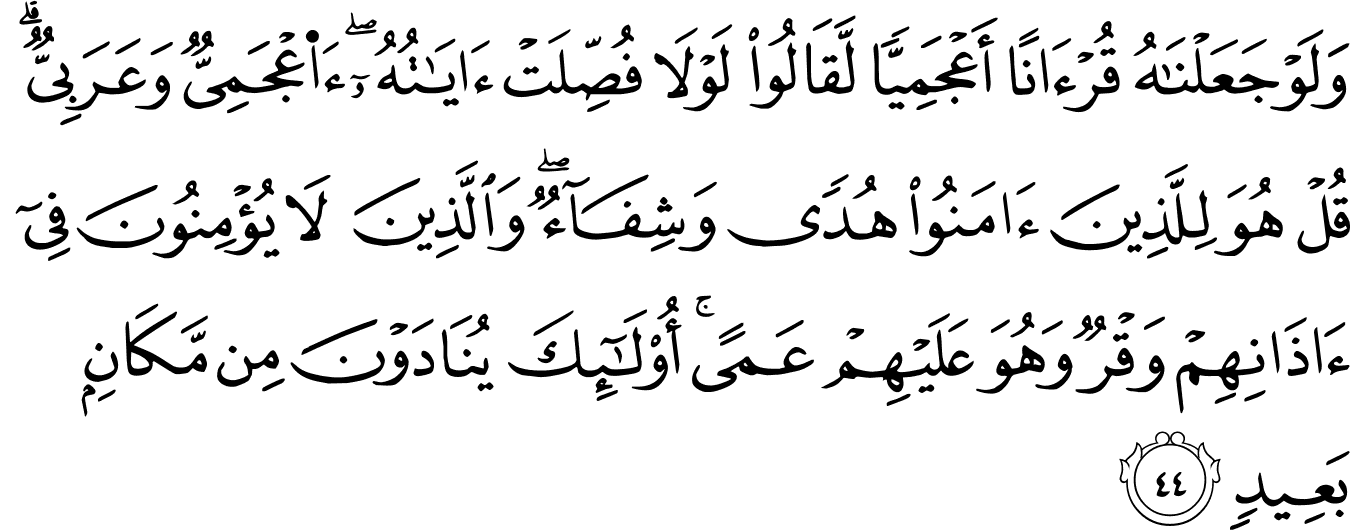Reading Time
- Summary Transcript: ~25 minutes
- Full Transcript: ~4 minutes
Learning Objectives
- Understand the different types of fasting in Islam, including obligatory and voluntary fasts.
- Identify and describe virtuous days for voluntary fasting and the rewards associated with each.
- Explain the significance of fasting during the six days of Shawwal, the day of Arafah, and Ashura.
- Recognize the recommended weekly and monthly fasting practices, such as fasting on Mondays and Thursdays and during the “white days.”
- Describe the fast of Prophet Dawud, its unique characteristics, and why it is considered the most balanced and virtuous.
- Explain the ethical principles of mindful speech in Islam and the importance of speaking only good or remaining silent.
- Understand the accountability of our words, as recorded by angels, and the potential consequences of careless or excessive speech.
- Learn the importance of remembering Allah in social gatherings to avoid regret and ensure blessings.
- Develop self-discipline through fasting and mindful speech to strengthen one’s relationship with Allah.
- Apply a balanced approach to worship that considers personal well-being and sustainable practices.
Class Summary
Fasting and mindful speech are two powerful tools that deepen one’s connection to Allah and foster personal growth. Drawing from the teachings of Imam Ibn Qudamah, this post explores the different types of fasting, the significance of virtuous days, and the ethics of speech.
Types of Fasting: Obligatory and Voluntary
In Islam, fasting can be obligatory or voluntary. Obligatory fasts include Ramadan, making up missed days, and specific acts of atonement. Voluntary fasts, Sawm al-Tatawwu’, bring reward without liability if missed, allowing believers to engage in an additional layer of spiritual practice.
Virtuous Days for Voluntary Fasting
Certain days of the year carry heightened spiritual value and reward, such as the six days of Shawwal after Ramadan, the day of Arafah (9th of Dhul-Hijjah), and Ashura (10th of Muharram). These days present believers with opportunities to increase their rewards and seek closeness to Allah. Weekly fasting on Mondays and Thursdays and the monthly “white days” (13th, 14th, and 15th of each lunar month) are also encouraged, each aligning one’s heart with patience, gratitude, and remembrance of Allah.
The Fast of Prophet Dawud: The Ideal Balance
The Prophet Muhammad, peace be upon him, described the alternating fast of Prophet Dawud—one day on, one day off—as the most balanced and rewarding. This pattern allows for consistent worship while preserving physical strength. By alternating fasting with eating, one practices both patience and gratitude, strengthening self-discipline.
The Ethics of Speech: Speak Good or Remain Silent
In addition to fasting, speaking mindfully is critical for spiritual refinement. The Prophet, peace be upon him, taught, “Whoever believes in Allah and the Last Day, let him speak well or remain silent.” Every word we speak is documented, and excessive or careless speech can lead to regret on the Day of Judgment. Choosing to speak only when it benefits oneself or others helps keep the heart soft and aligned with Allah’s remembrance.
Avoiding Regret: Remember Allah in Gatherings
When gathering with others, remembering Allah even briefly prevents gatherings from becoming sources of regret. The Prophet, peace be upon him, warned that gatherings without mention of Allah or sending blessings upon the Prophet resemble gatherings around the carcass of a donkey. Ensuring each gathering includes a few moments of dhikr transforms it into a source of blessing.
Conclusion
Both fasting and mindful speech are means of drawing closer to Allah and cultivating self-discipline. By fasting during virtuous days, choosing balanced patterns like that of Prophet Dawud, and observing restraint in speech, believers can fortify their faith and live in remembrance of Allah. May we all strive to apply these practices, achieving a life enriched with spirituality and self-awareness.
Full Transcript
Introduction and Opening Du’a
Alhamdulillah Rabbil Alameen. Salallahu wa sallam wa baraka nabiyyana Muhammadin wa ala alihi wa sahbihi wa sallam taslim min kathira thimma ma ba’d. We welcome you back to our Tafsir classes from the book of Imam Ibn Qudamah, rahimahullah ta’ala, Mukhtasar Minhajil Qasidin. Tonight we are discussing section three on the voluntary fast, Sawm al-Tatawwu’ — the secrets of voluntary fasting.
Observing Voluntary Fasting (Sawm al-Tatawwu’)
When you fast voluntarily, how should you observe that? What kind of intention and spirit should you bring with you? Let’s hear from Imam Ibn Qudamah, insha’Allah tabaraka wa ta’ala. Bismillah wa alhamdulillah wa salatu wa salamu ala Rasulillah salallahu alaihi wa sallam.
Categories of Fasting
The author, Imam Ibn Qudamah, rahimahullah, says: “As for the voluntary fast, Sawm al-Tatawwu’, preference is established for fasting on certain virtuous days, Ayyam al-Fadilah.” Imam Ibn Qudamah, rahimahullah, mentions that we have multiple categories of fasting. We have Sawm al-Faridah, the obligatory fast, such as Ramadan. What else would be considered obligatory? Al-Qadha—making up a missed fast. When you make up a day of Ramadan, that is also considered obligatory. A third category is Kaffarat—expiation for sins. If, for example, you break an oath, making up that fast becomes obligatory.
What is the significance of an obligatory fast? Obligatory fasting means you must fulfill it. You are rewarded for doing it and considered sinful if you don’t. Abandoning an obligatory act incurs punishment, while fulfilling it brings reward.
The Difference Between Obligatory and Voluntary Fasting
Now, regarding Nafl or Tatawwu’ fasting: if you perform it, you gain reward, but if you don’t, there’s no sin and no liability. That’s the main difference between wajib (obligatory) and mustahab (recommended). Any fast that must be done has both reward and punishment attached to it, but a voluntary fast carries no liability if missed.
The Virtuous Days for Voluntary Fasting
Imam Ibn Qudamah, rahimahullah, explains that certain times increase the reward for Sawm al-Tatawwu’, as these times are more desirable. Such days, called virtuous days, intensify and magnify rewards. He provides examples: fasting the six days of Shawwal after Ramadan, fasting on the day of Arafah, fasting on Ashura, and fasting the first ten days of Dhul-Hijjah and Muharram.
Mistranslation of “First Six Days” of Shawwal
A mistranslation appears here in the text. It says “the first six days of Shawwal.” In the Arabic text before me, it actually says “six days of Shawwal after the month of Ramadan.” There is no requirement that they be the first six days of Shawwal. These six days do not need to be consecutive or from the start of Shawwal. Any six days within Shawwal will fulfill the recommendation. Some scholars do suggest fasting them right after Eid, saying it’s preferable, but this is not obligatory. How often are you required to fast six days of Shawwal? Once a year.
Fasting on the Day of Arafah and Ashura
He continues, discussing fasting on the day of Arafah, which is the 9th of Dhul-Hijjah, right before the Hajjaj gather in Mecca to perform the Hajj rituals. Ashura is the 10th of Muharram. Then, Wa-Ashur Dhul-Hijjah, which refers to the ten days of Dhul-Hijjah collectively, though you don’t actually fast on the Eid day itself, only on nine days.
Some scholars debate whether fasting these full nine days is essential or if fasting some is enough. But since the Prophet, salallahu alaihi wa sallam, stated that there are no better days for good deeds than these ten, scholars deduce that fasting among them is highly virtuous. This includes the day of Arafah specifically.
Fasting in the Sacred Month of Muharram
Imam Ibn Qudamah also touches on fasting in al-Muharram, the sacred month. In Surah At-Tawbah, Allah designates four sacred months in the lunar calendar. Before Islam, Arabs regarded these as times of peace when fighting was prohibited so people could safely prepare for Hajj. Islam upheld the sanctity of these months, even though Arabs sometimes manipulated the months according to their interests.
When the Prophet, salallahu alaihi wa sallam, mentioned Muharram, was he referring only to the first month of the lunar year or to all four sacred months? Three sacred months are consecutive—Dhul-Qa’dah, Dhul-Hijjah, and Muharram—and one, Rajab, stands alone as the seventh month. There are differing opinions on whether fasting in Muharram means only the first month or any of the sacred months. Many scholars argue it’s the first month specifically, but others say fasting in any sacred month is beneficial.
Other Times to Fast: Monthly, Weekly, and Daily Fasts
He moves on to monthly fasting. Some fasts occur every month, such as fasting a few days at the start, middle, and end of the month. Ibn Qudamah explains that it’s better to fast on the three “white days”—the 13th, 14th, and 15th of each lunar month. Why are they called the white days? The full moon illuminates the night like daylight, making it possible to read or write by moonlight alone, a luxury lost today due to urban light pollution.
Ibn Qudamah also mentions weekly fasts, such as fasting on Mondays and Thursdays. The Prophet, salallahu alaihi wa sallam, practiced this, explaining that these are the days when deeds are presented to Allah. The angels who record our actions take shifts; one set goes up with their records at the end of each shift. The Prophet said he liked his deeds presented to Allah while he was fasting. This act of weekly fasting, he taught, was beloved to Allah, who said, “The son of Adam’s deeds are his, except for fasting, which is done for Me, and I shall reward him for it.”
If you cannot fast weekly, fasting the three middle days of each lunar month—13th, 14th, and 15th—is also meritorious. If even this is too much, seek out specific, virtuous days to fast throughout the year.
The Virtue of the Fast of Prophet Dawud
Then there is the daily fast. The Prophet, salallahu alaihi wa sallam, described the most virtuous fast as the fast of Prophet Dawud, who fasted every other day. He said, “The best type of fast is Dawud’s fast—one day on, one day off.” This alternation ensures a balance between fasting and regular sustenance, preventing physical weakness from fasting every day. Who can maintain this? Perhaps some in cooler climates, but for those living in regions with intense summers, fasting every other day is challenging. Yet, the more hardship endured for Allah, the greater the reward.
Imam Ibn Qudamah outlines three reasons the fast of Dawud is most virtuous. First, it is just to the soul, allowing it a share of both fasting and eating. It balances the nafs’s rights, providing both worship and rest, which is fair. Second, the alternation of days resembles iman, which consists of thankfulness and patience. When you fast, you practice patience; when you eat, you show gratitude. Third, it trains the nafs, ensuring it doesn’t grow complacent by staying in one condition for too long. You teach it both to restrain and to indulge appropriately.
Fasting Continuously and the Prohibition on Certain Days
Imam Ibn Qudamah also addresses daily fasting, noting that continuous fasting every day is discouraged. Abu Qatada reported that Umar once asked the Prophet, salallahu alaihi wa sallam, about fasting every day. The Prophet replied that fasting every day isn’t counted as fasting. Scholars interpret this to mean that fasting every day, including days when fasting is forbidden, is discouraged. The forbidden days are the two Eids and the three days of Tashreeq following Eid al-Adha. As long as these are avoided, fasting other days is acceptable. However, the Prophet emphasized that the best fast is that of Dawud—every other day.
Diverse Forms of Worship and Individual Capacity
Some Companions, like Abdullah Ibn Mas’ud, preferred other acts of worship over fasting. Ibn Mas’ud fasted little, saying, “When I fast, I grow weak in my prayer, and I prefer the prayer over the optional fast.” Each worshipper is unique, and Imam Ibn Qudamah concludes that the best form of worship is that which brings you closest to Allah. Whether fasting, praying, or giving charity, find an act of worship you can consistently and secretly perform as your connection to Allah. This can be your “secret worship” with Allah, unknown to anyone else.
May Allah grant us the ability to engage in worship that brings us closer to Him.
The Significance of Speech: Choosing Words Wisely
Tonight, insha’Allah, we’re going to continue from where we left off last week. We discussed Hadith 15, which has three main points that need further elaboration.
The hadith states that the Messenger of Allah, peace be upon him, said: “Whoever has Iman in Allah and the Last Day, let him speak well or remain silent. Let whoever has Iman in Allah and the Last Day generously honor his neighbor. Let whoever has Iman in Allah and the Last Day generously honor his guest.”
Importance of Restraining the Tongue
Last week, we discussed the value and importance of speaking good and the significance of restraining one’s tongue. Today, insha’Allah, we’ll continue from what Imam Ibn Rajab started explaining, on page 217, where he comments on this hadith. He says:
“His words, ‘Let him speak well or remain silent,’ is a command to speak well and to remain silent about anything besides that which is good. This shows that there is no speech that should be equally spoken or kept unsaid. Either it is good, so it is commanded to say it, or it is not good, and it is commanded not to say it.”
This means that there is no statement that is both good and bad to say at the same time. If something is good, you should say it. If it is bad, you should remain silent. There’s no case where it’s better to both say and not say something. He’s going to explain further.
The hadith of Mu’adh and of Umm Habiba show this principle. Ibn Abi Dunya narrates the hadith of Mu’adh. In this hadith, the Prophet, peace be upon him, says to him, “Mu’adh, may your mother be bereft of you! Do you say anything that it is reckoned to be in your favor or against you?” And Allah, exalted is He, says in the Qur’an:
“When the two receivers receive (him), one sitting on the right and the other on the left. Not a word does he utter except that there is an observer ready [to record].” (Qur’an 50:17-18)
The Accountability of Our Speech and Actions
In this hadith, Mu’adh, may Allah be pleased with him, is shocked and asks, “Are we going to be held accountable for what we say?” The Prophet, peace be upon him, expresses surprise at Mu’adh’s question, replying, “What are you talking about? What throws people in Jahannam on their faces more than the harvest of their tongues?” People say things they think are light, but the evil of those words goes beyond their intentions, especially in today’s world with the internet. A single statement can spread around the world, causing harm and vice on a large scale.
Now, about the two angels, Al-Mutlaqiyan. There’s some discussion about whether these angels sit on your shoulders or if they’re metaphorically recording actions. Are the angels physically sitting on the right and left sides? We know that in cartoons we’ve seen them depicted this way, but real life is not like cartoons. These expressions are metaphoric, illustrating that each angel has a specific duty: the one on the right records good actions, while the one on the left records wrong actions. They are metaphorically poised, ready to document everything you say and do, like Allah tells us in this ayah.
Are All Words Recorded?
There is a disagreement among scholars on whether the angels record everything we say or only words that have significance for reward or punishment. One group says the angels document every single word, including “I ate,” “I drank,” “I went,” “I came,” until Thursday when all our words and deeds are shown to Allah. Then, everything that deserves reward or punishment is kept, and the rest is discarded.
Ibn Abbas held this view, and he would recite the verse:
“Indeed, over you are appointed angels, keeping watch, noble and recording; they know whatever you do.” (Qur’an 82:10-12)
The meaning is that angels document everything initially, but before they take these records up to Allah, they conduct an “audit.” If you repented for something, it’s erased. If you made du’a, any sin related to it might be forgiven. So, alhamdulillah, we have a chance to rectify matters between Mondays and Thursdays. In the end, they keep only what’s worth recording for accountability.
Example of “May the Donkey Perish”
In one narration, a man once said, “May the donkey perish!” The angel on the right side said, “That is not a good action that I should write.” The angel on the left said, “It is not a wrong action that I should write.” Then Allah revealed to the angel on the left, “Anything which the angel on the right leaves out, record it.” So, “May the donkey perish” was recorded as a wrong action. This teaches us that if something isn’t good, it leans toward being bad and is therefore worth avoiding.
Some scholars argue that whatever is not a good action is, by default, a wrong action, even if it doesn’t carry punishment. Certain wrong actions might not incur punishment directly but might bring regret in the Hereafter for the time wasted. This regret itself is a form of punishment. For example, spending two hours watching something neutral, like National Geographic, might not be sinful, but on the Day of Judgment, you might regret not spending that time in dhikr or other beneficial activities.
Remembering Allah in Gatherings
The Prophet, peace be upon him, advised that people should remember Allah in gatherings. If they stand from a gathering where they did not remember Allah, they are as if they got up from eating the dead body of a donkey, and it will be a source of regret for them. This is a scary thought, as we often spend time in gatherings—family events, parties, and social outings—without mentioning Allah even once. Some gatherings may even skip salat entirely. The Prophet, peace be upon him, said that such gatherings bring regret, like getting up from the corpse of a donkey.
Imam Ahmad, Abu Dawood, and Nisa’i narrated a hadith from Abu Huraira, where the Prophet, peace be upon him, said, “Any people who stand up from a gathering in which they did not remember Allah, stand up from something like the corpse of a donkey, and it will be a source of regret for them.”
Restraining Speech and Avoiding Excessive Talking
If you must speak, it is better to speak only what is good or necessary. Ibn Mas’ud, may Allah be pleased with him, advised against excessive speech, saying that it leads to many mistakes, which then lead to wrong actions, potentially placing a person in the Fire. Excessive speech can also harden the heart, as mentioned in a hadith of Ibn Umar: “Do not speak a lot without the remembrance of Allah, because a great deal of talk without remembrance hardens the heart, and the people who are furthest from Allah are those with hard hearts.”
So, if we speak, our speech should be of four kinds: remembering Allah, reciting Qur’an, asking a question about knowledge, or discussing something necessary for this world. We often speak much more than this, which means we need to be careful and evaluate the quality of our speech. Excess speech without purpose can be damaging, even if not sinful.
We are also warned not to feel invincible or self-sufficient due to wealth. Umar ibn al-Khattab, may Allah be pleased with him, once advised that whoever speaks a lot makes a great many mistakes, leading to a large number of wrong actions, ultimately bringing a person closer to Hellfire.
Conclusion: Speak Good or Remain Silent
Therefore, we should balance our speech and silence. Some scholars say remaining silent is better, as it guarantees protection from liability. However, others say that speaking good is better because it not only benefits oneself but also those around them.
May Allah make our gatherings gatherings of khair, filled with the remembrance of Allah and salawat upon the Prophet, peace be upon him. May Allah make us among those who listen to the speech and follow the best of it.
Q&A
- What are the two main types of fasting in Islam?
- Obligatory (Sawm al-Faridah) and voluntary (Sawm al-Tatawwu’).
- Which fasts are considered obligatory?
- Ramadan, making up missed days (Qadha), and expiation fasts (Kaffarat).
- Name some specific days or periods considered especially virtuous for voluntary fasting.
- Six days of Shawwal after Ramadan, day of Arafah (9th of Dhul-Hijjah), Ashura (10th of Muharram), Mondays and Thursdays, and the three white days of each lunar month (13th, 14th, and 15th).
- How are the “white days” connected to the lunar cycle?
- They occur on the 13th, 14th, and 15th of each lunar month during the full moon, when nights are brightest.
- What is unique about the fast of Prophet Dawud?
- He would fast every other day, alternating between fasting and eating.
- Why is the fast of Prophet Dawud considered the most virtuous?
- It balances worship with physical well-being, practices patience and gratitude, and trains the soul without overburdening it.
- According to the Prophet Muhammad, peace be upon him, what should one do if they cannot speak well?
- Why is speaking mindfully important in Islam?
- Every word is recorded by angels, and careless speech can lead to regret on the Day of Judgment.
- What are the four types of beneficial speech mentioned in the text?
- Remembering Allah, reciting the Qur’an, asking questions about knowledge, and discussing necessary matters for worldly needs.
- What is the consequence of attending gatherings where Allah is not mentioned?
- Such gatherings may bring regret in the Hereafter, as the Prophet, peace be upon him, likened them to gatherings around the carcass of a donkey.
- What can one do to make a gathering blessed?
- Include moments of remembrance of Allah and send blessings upon the Prophet, peace be upon him.
- How does voluntary fasting contribute to self-discipline?
- It allows one to practice patience and gratitude, build restraint, and gain closeness to Allah.
- Why is it important to have a balance between fasting and physical well-being?
- Overburdening oneself can lead to burnout, whereas a balanced approach, like the fast of Dawud, ensures sustainable worship.
The post Study Classical Texts the Traditional Way | Session 22 appeared first on MuslimMatters.org.



 Grace, and I have never known a Ramadan that did not test my patience or those around me. I have seen a loved one pass away, tempers flare, voices raised, wealth destroyed, health decline. Something like it happens every year without exception. I have come to anticipate it.
Grace, and I have never known a Ramadan that did not test my patience or those around me. I have seen a loved one pass away, tempers flare, voices raised, wealth destroyed, health decline. Something like it happens every year without exception. I have come to anticipate it. Also known as “fruit kebabs” (major cringe), fruit skewers are fun and easy for kids to make and also highly appetizing to consume after a long day’s fast. You can cut fresh fruit beforehand, depending on how old your child is and whether or not they can safely handle a knife. You can also use canned fruit or berries that simply need a wash. If you want to get super fancy, go for an Edible Arrangements vibe–but that is highly unnecessary.
Also known as “fruit kebabs” (major cringe), fruit skewers are fun and easy for kids to make and also highly appetizing to consume after a long day’s fast. You can cut fresh fruit beforehand, depending on how old your child is and whether or not they can safely handle a knife. You can also use canned fruit or berries that simply need a wash. If you want to get super fancy, go for an Edible Arrangements vibe–but that is highly unnecessary. 

 was commanded to pray at night, and Allah
was commanded to pray at night, and Allah 









 reported on the authority of the Messenger of Allah
reported on the authority of the Messenger of Allah 






 argued that it is entirely permissible to receive payment for teaching the Quran. However, other narrations warn against accepting money for teaching the Quran, leading some scholars to initially hold the view that it was impermissible. The Ḥanafī school of thought, in particular, adopted this position, especially because, historically, the state would provide imams, scholars, and teachers with stipends that allowed them to live comfortably.
argued that it is entirely permissible to receive payment for teaching the Quran. However, other narrations warn against accepting money for teaching the Quran, leading some scholars to initially hold the view that it was impermissible. The Ḥanafī school of thought, in particular, adopted this position, especially because, historically, the state would provide imams, scholars, and teachers with stipends that allowed them to live comfortably.